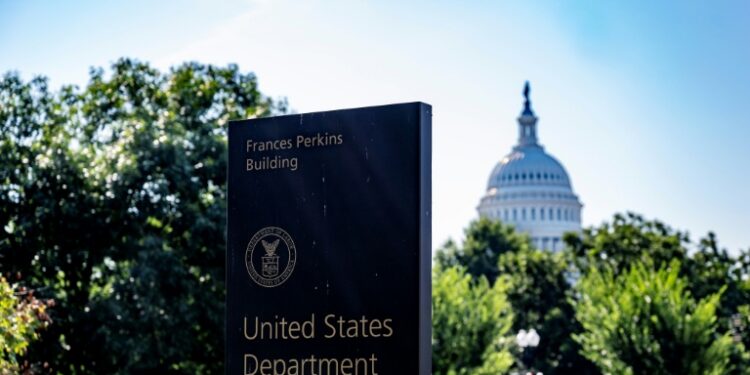Washington (AFP) – The United States suspended the publication of a key employment report Friday as a partial government shutdown entered its third day, casting a fog over the health of the world’s biggest economy. The government has also delayed other economic releases this week, including a report on the number of Americans seeking unemployment benefits — depriving government and business leaders of indicators used in decision-making. The data halt comes as the ongoing shutdown saw hundreds of thousands of federal employees being sent home across a range of agencies. The Congressional Budget Office recently estimated that under a lapse in funding, about 750,000 employees could be furloughed each day.
But the US labor market has come under heightened scrutiny in recent months as hiring weakened notably, prompting the central bank to make its first interest rate cut of the year. Without up-to-date official data, “the Federal Reserve will not have the full picture it needs to make decisions this month about interest rates that will impact every family across the country,” warned Elizabeth Warren, the top Democrat on the Senate Banking Committee on Thursday. She urged President Donald Trump’s administration to release data that has already been collected, despite the stoppage.
“What we’re talking about is intentionally flying blind, and it happens to be at a critical point for decision making,” said Erica Groshen, a former commissioner of the Bureau of Labor Statistics (BLS) which publishes the jobs report. She told AFP that the economy is “not on an even path at the moment” but rather, slowing down. “We don’t know whether this slowdown will continue into a recession or not,” said Groshen, who is now senior economics advisor at Cornell University. “It’s at these points that the data are always most confusing.” “So, to have them be of lower quality or just unavailable, will make these decisions all that much more difficult,” she said.
If the shutdown persists through October 15, the next consumer inflation report could also be delayed. In the absence of reliable government data, economists have to rely on alternate, private sources to make their assessments.
– Political pressure – With the shutdown leaving the Fed in a “fog about the labor market,” economist Matthew Martin of Oxford Economics expects the situation will fuel support for an October interest rate cut. Central bank officials might be inclined to lower rates again after doing so in September, to shore up employment “rather than risk falling behind and having to cut more later,” he told AFP.
Additionally, the BLS is facing heightened political pressure. In August, Trump fired its commissioner Erika McEntarfer hours after the department sharply revised hiring figures downwards. The president alleged that the report was “rigged,” and that the official had manipulated data to diminish his administration’s accomplishments. McEntarfer’s removal drew condemnation from the National Association for Business Economics. “Because the government data is the gold standard, it’s extremely troubling that there’s any hint of potential political influence on the statistics,” Martin said.
Groshen warned: “When you have unfounded attacks on the quality and the objectivity of data then people won’t trust it as much, and they won’t use it.” “They’re going to use something else, or nothing at all,” she said.
© 2024 AFP



















